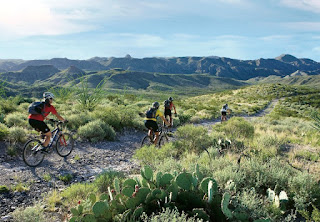 |
| From Biking Bis |
Back in April, cyclo-cross racer Molly Cameron denounced a new Arkansas law that would ban gender-affirming care for transgender minors. She said that as long as such laws are in effect, “I won’t be spending my money in Arkansas” or any other state that enacts them.
In July, a Federal judge issued an injunction against the Arkansas law. Other jurisdictions, however, have passed all sorts of laws targeting transgender people. Such legislation includes North Carolina’s infamous “bathroom bill” and regulations that prohibit kids from playing on school sports according to the gender by which they identify themselves rather the one on their birth certificate.
Then there is Texas. As you’ve probably heard by now, the Lone Star state has
banned nearly all abortions. But the law Governor Greg Abbot signed goes only George Orwell has gone before: It criminalizes, not only those who “aid and abet” an abortion; it also makes it a crime to even intend such a thing. Moreover, it deputizes everyday citizens to sue such people and potentially receive a $10,000 settlement.
In other words, the law defines a thought crime and turns Texas into what’s the old German Democratic Republic (a.k.a. East Germany) would have been if the STASI consisted of bounty hunters. And by allowing people to sue anyone who “aids and abets”
So why am I writing about this in a cycling blog? Well, I had no intention of traveling to Texas this year for the same reasons I decided not to travel at all this year, but Texas will not be on any itinerary of mine as long as the law is in effect. Many cycling events attract participants as well as other tourists from other states and countries. I would encourage people to avoid them, and other events in the state. I also will try not to use products or services provided by companies based in Texas.
As cyclists, we should recoil at anything that attempts to restrict or take away our agency over ourselves, whether in body or mind. And—call me paranoid if you like—but if an Uber driver can be sued by someone who has a grudge against him or her for driving a pregnant woman to an abortion provider—or someone else can be sued for mentioning abortion (remember: “intention” is a crime)—who is safe?
Hey, if in the course of a ride I pass a snack or water to another rider who turns out to be a Planned Parenthood employee or volunteer, would I be guilty?

